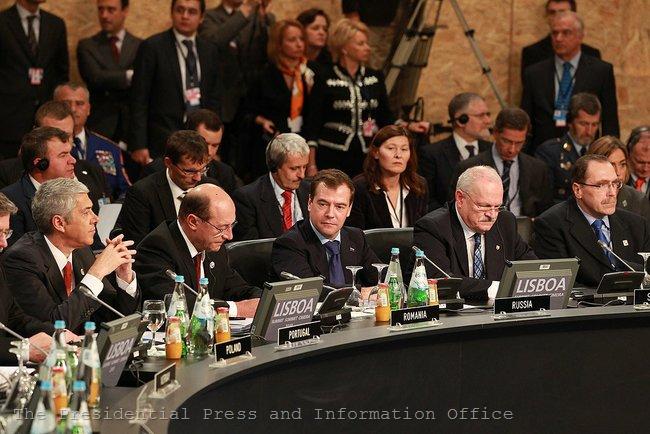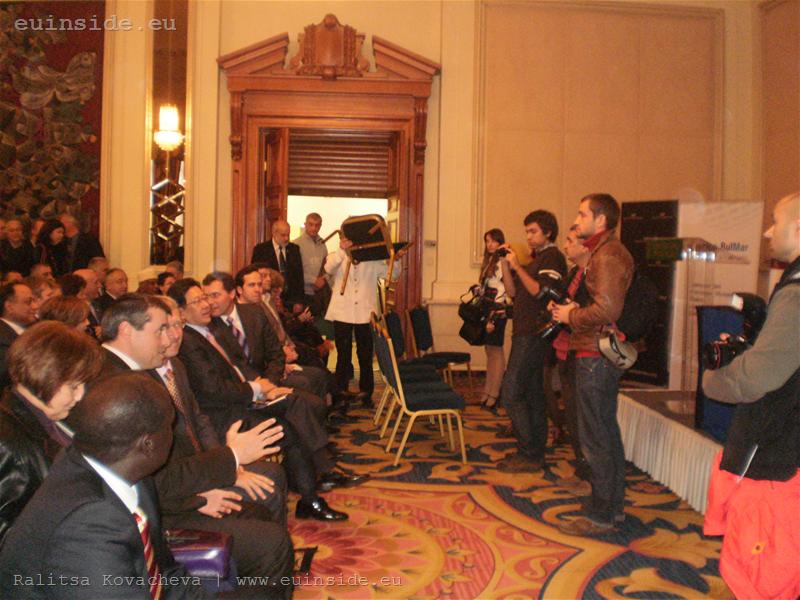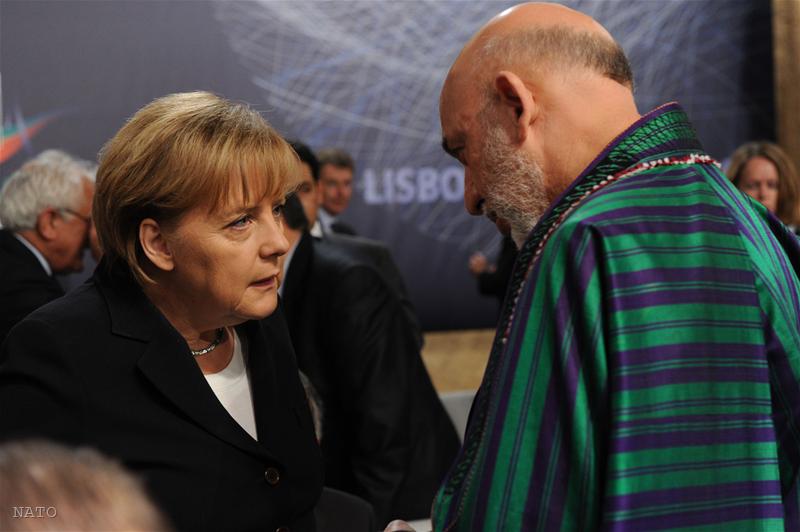Obama reaffirmed Europe as an ally but priorities still differ
Adelina Marini, November 19, 2010
 On the eve of the Nato summit, as well as the EU-US summit in Lisbon, the American president Barack Obama conveyed a message in a special article in the New York Times. This message, however, clearly shows that EU's and US's priorities differ on key issues. Although he starts his article namely with the EU-US summit, which was canceled last spring because of lack of clarity whom the White House should to talk to in the EU after the entry into force of the Lisbon Treaty, the focus of his message was Nato.
On the eve of the Nato summit, as well as the EU-US summit in Lisbon, the American president Barack Obama conveyed a message in a special article in the New York Times. This message, however, clearly shows that EU's and US's priorities differ on key issues. Although he starts his article namely with the EU-US summit, which was canceled last spring because of lack of clarity whom the White House should to talk to in the EU after the entry into force of the Lisbon Treaty, the focus of his message was Nato.
"With no other region does the United States have such a close alignment of values, interests, capabilities and goals. With the largest economic relationship in the world, trans-Atlantic trade supports millions of jobs in the United States and Europe and forms a foundation of our efforts to sustain the global economic recovery", Barack Obama writes. Thus ending bilateral relations and passing on directly to Nato.
As could have been expected, the first priority of the American administration is Afghanistan. The common ground in the positions of the US and the EU is in the idea to align both sides' efforts to transition to an Afghan lead, by in the same time sustaining an enduring commitment to the Afghan people. Differences, however, lay in the approach toward terrorists, as well as the focus on fighting cultivation and distribution of drugs. In a draft report, approved by the Foreign Affairs Committee in the European Parliament a few days ago, it is stated that the EU should open toward the various combatant groups in Afghanistan, including the Taleban with the aim to get their involvement for the success of such a transition.
According to president Obama, however, "our shared effort is essential to denying terrorists a safe haven, just as it is necessary to improve the lives of the Afghan people. With the arrival of additional coalition forces over the last two years, we finally have the strategy and resources to break the Taleban’s momentum, deprive insurgents of their strongholds, train more Afghan security forces, and assist the Afghan people".
According to Mr Obama's message, in Lisbon his main goal would be alignment of approach for the initiation of a transition to Afghanistan taking responsibility for its own management. Such a transition, according to the American president, should start in early next year and the goal of Afghan president Hamid Karzai is Afghan forces to be able to take on security of their country by the end of 2014.
With regard to the Nato's new Strategic Concept, president Obama deems it  necessary the command structure of the Alliance to be reformed, so that they become more efficient and effective; invest in the technologies that allow allied forces to deploy and operate together effectively, and develop new defenses against threats such as cyber attacks.
necessary the command structure of the Alliance to be reformed, so that they become more efficient and effective; invest in the technologies that allow allied forces to deploy and operate together effectively, and develop new defenses against threats such as cyber attacks.
The United States also wants to take the lead in the efforts to reduce nuclear arsenals toward a world without nuclear weapons. "Yet so long as these weapons [nuclear] exist, NATO should remain a nuclear alliance, and I’ve made it clear [during the Prague summit] that the United States will maintain a safe, secure and effective nuclear arsenal to deter any adversary and guarantee the defense of our allies", Obama writes in an article for the New York Times.
In the meantime however, the latter is not supported by the necessary actions. One of his greatest successes - the negotiation of a new disarmament treaty START - has yet not received the approval of the American Senate. A day ago president Obama attended a meeting, organised by his vice president Joe Biden, also attended by key names of America's modern history: Secretary of State Hillary Clinton; Chairman of the Senate Foreign Relations Committee Senator John Kerry; Senator Richard Lugar; former Secretaries of State Madeleine Albright, James Baker, and Henry Kissinger, as well as former Secretaries of Defense William Cohen and William Perry.
 Asked afterwards if the treaty would get the votes necessary to pass the Senate, the President replied like this: "I’m confident that we should be able to get the votes". His main argument in insisting the Senate to approve the Treaty by the end of the year is that unless it is ratified, the verification regime cannot be activated, allowing taking stock of Russia's strategic nuclear weapons, including American inspectors on the ground. "If we don’t [ratify], then we don’t have a verification regime - no inspectors, no insights into Russia’s strategic arsenal, no framework for cooperation between the world’s two nuclear superpowers. As Ronald Reagan said, we have to trust, but we also have to verify. In order for us to verify, we’ve got to have a treaty", the president concluded.
Asked afterwards if the treaty would get the votes necessary to pass the Senate, the President replied like this: "I’m confident that we should be able to get the votes". His main argument in insisting the Senate to approve the Treaty by the end of the year is that unless it is ratified, the verification regime cannot be activated, allowing taking stock of Russia's strategic nuclear weapons, including American inspectors on the ground. "If we don’t [ratify], then we don’t have a verification regime - no inspectors, no insights into Russia’s strategic arsenal, no framework for cooperation between the world’s two nuclear superpowers. As Ronald Reagan said, we have to trust, but we also have to verify. In order for us to verify, we’ve got to have a treaty", the president concluded.
In fact, the ratification of the new treaty by the American Senate is essential for another reason too - the Russian president Dmitry Medvedev made it clear that the Russian State Duma would not ratify the document, unless it is certain the Senate would.
The momentum should not be missed even more because this would be the first Nato summit, in the framework of which the Nato-Russia forum will take place after the tension that the Russian-Georgian conflict caused two years ago. euinside will follow both the Nato forum and the EU-US summit, so expect more news, analyses and comments in the next days.
 | © The Presidential Press and Information Office
| © The Presidential Press and Information Office | © euinside
| © euinside | © NATO
| © NATO